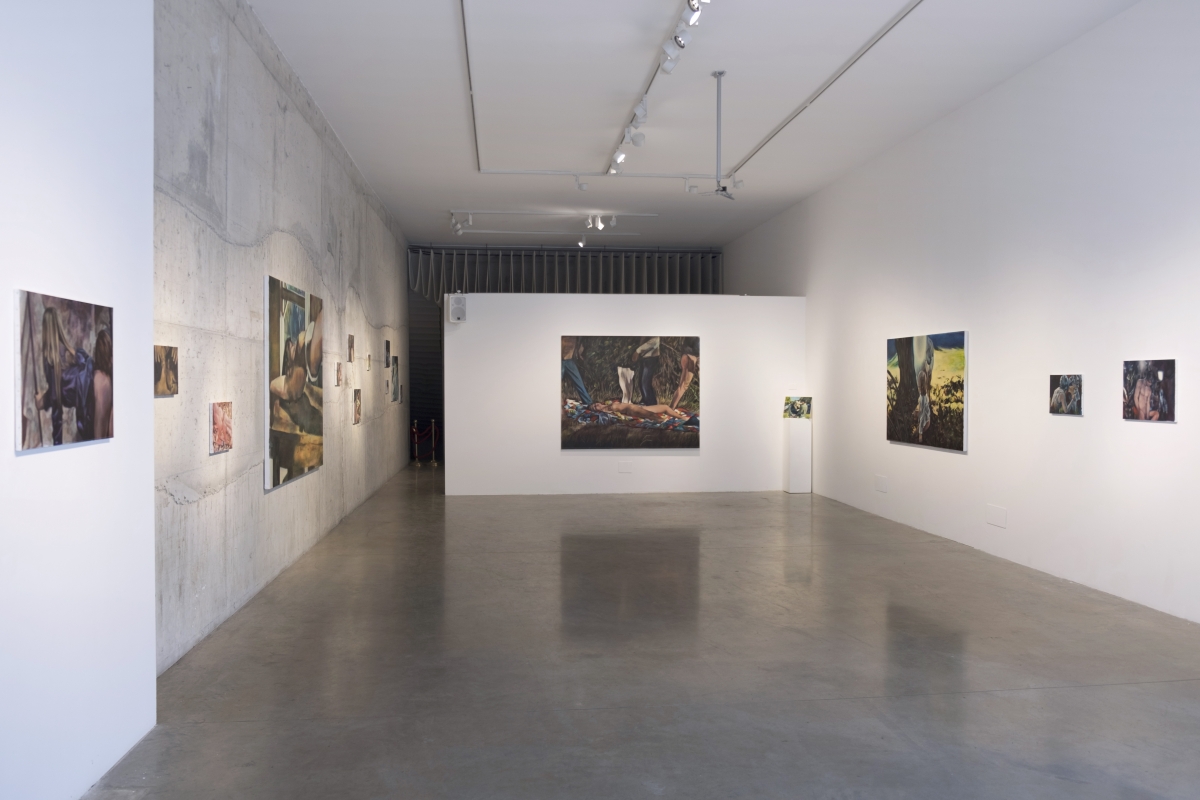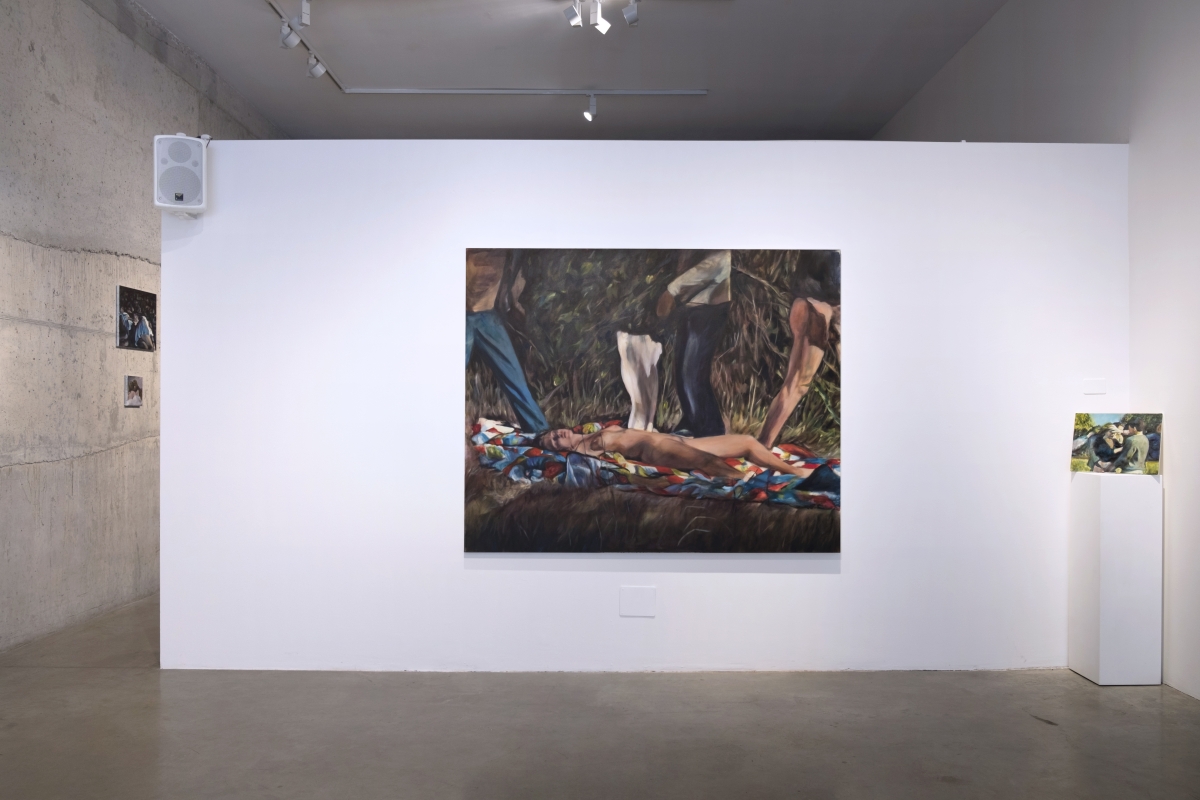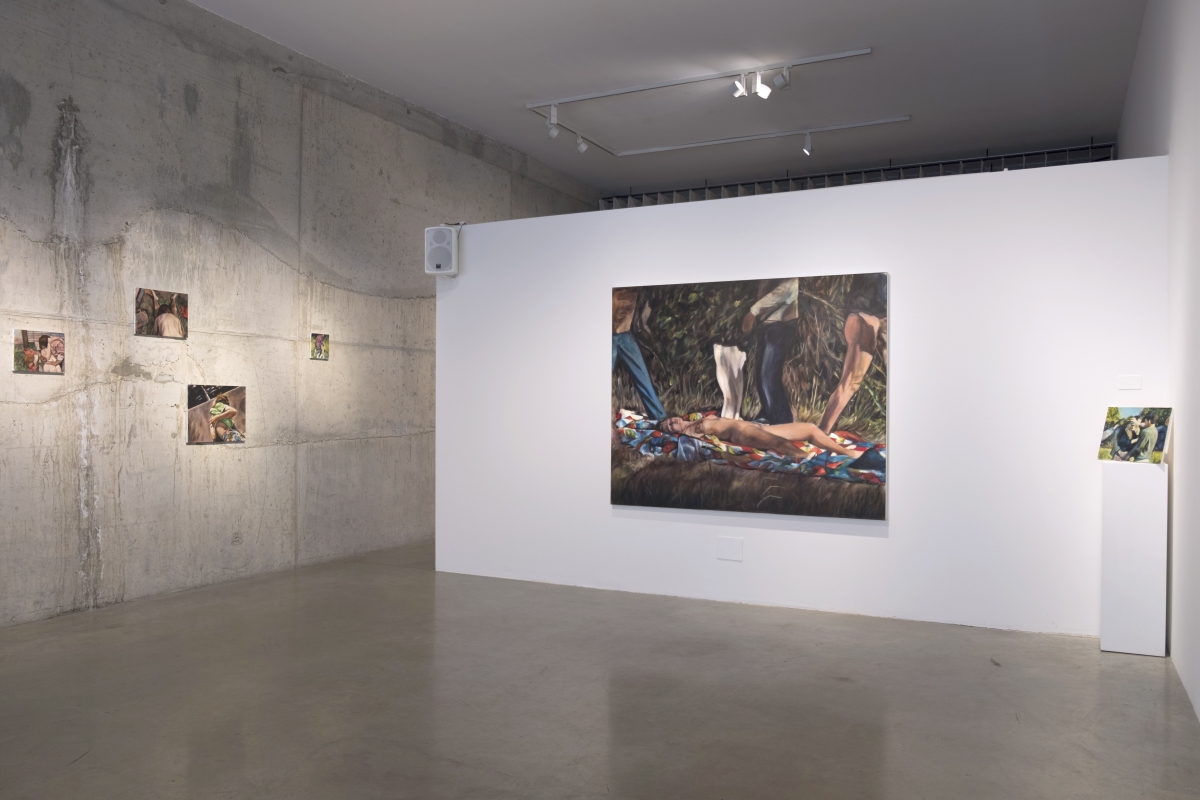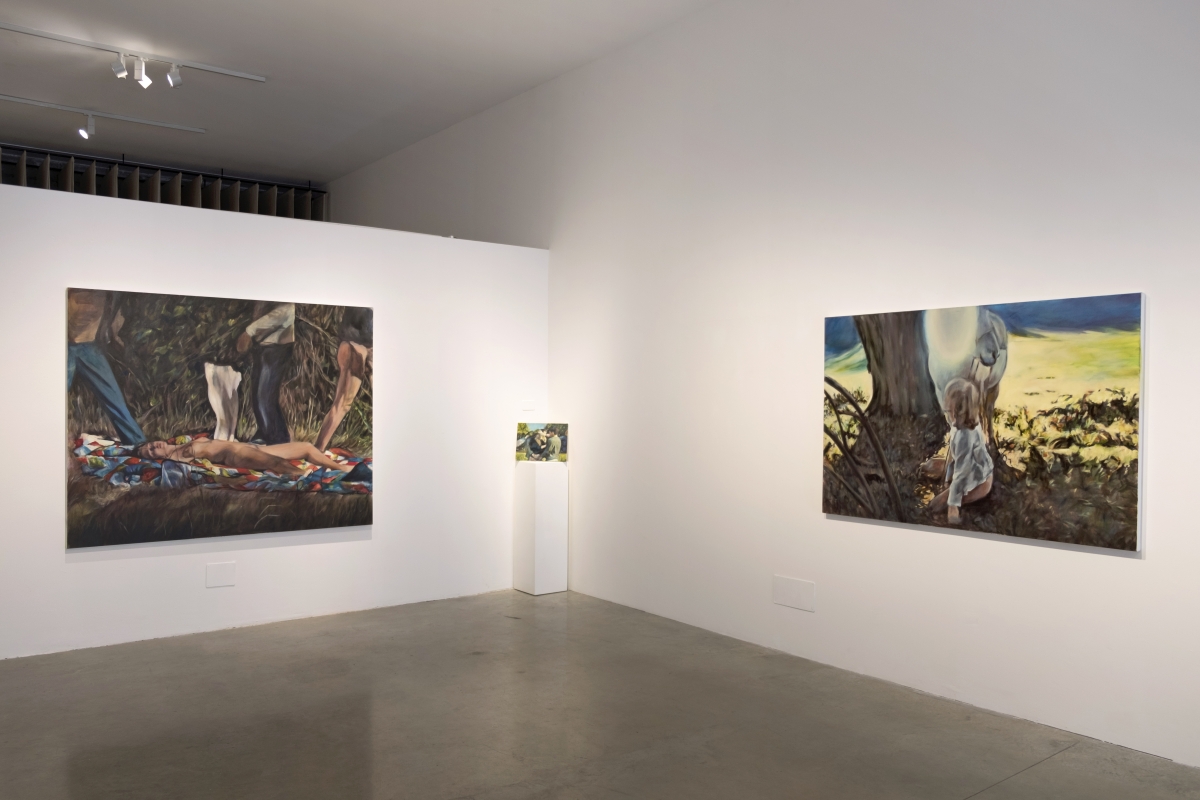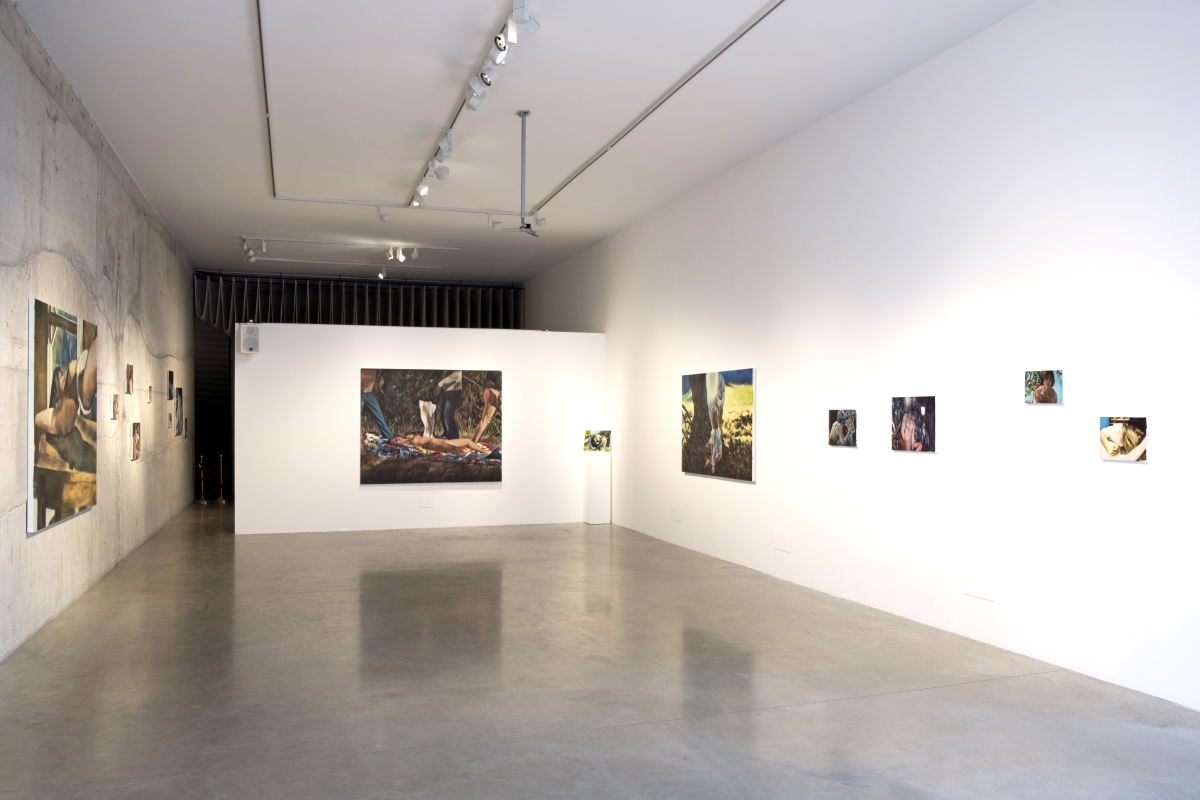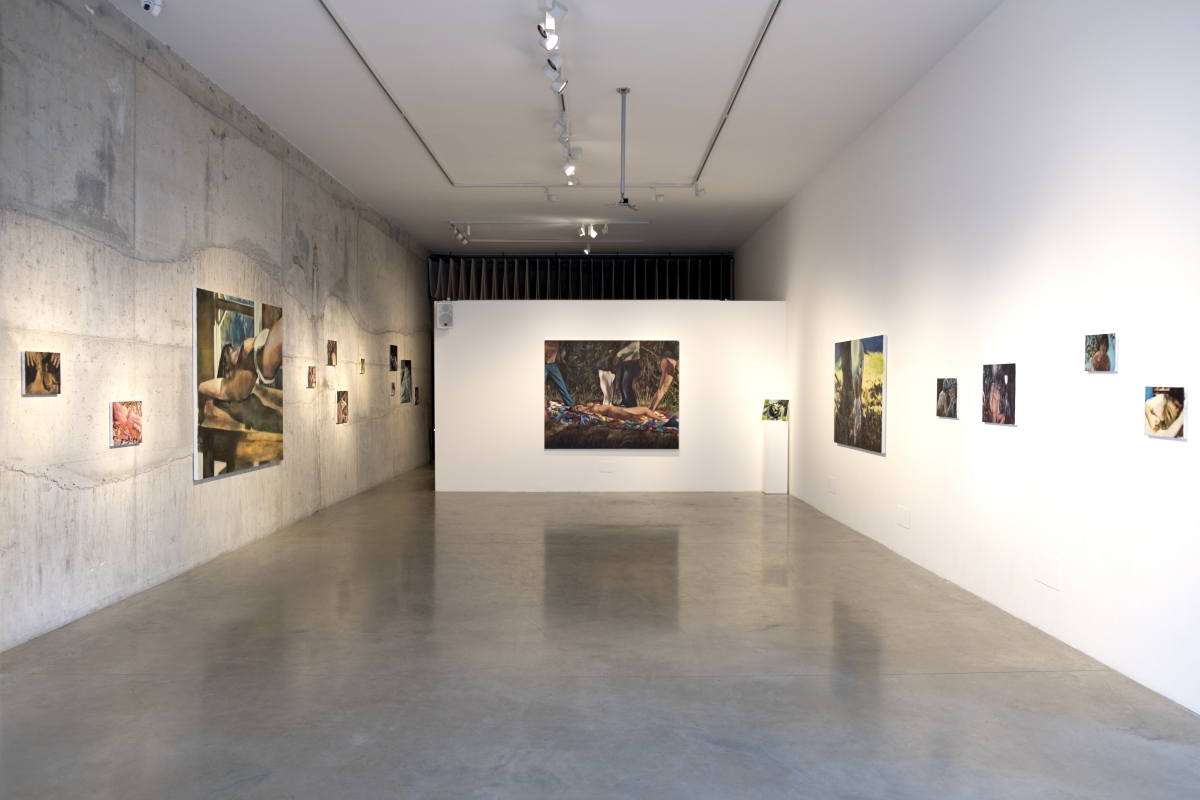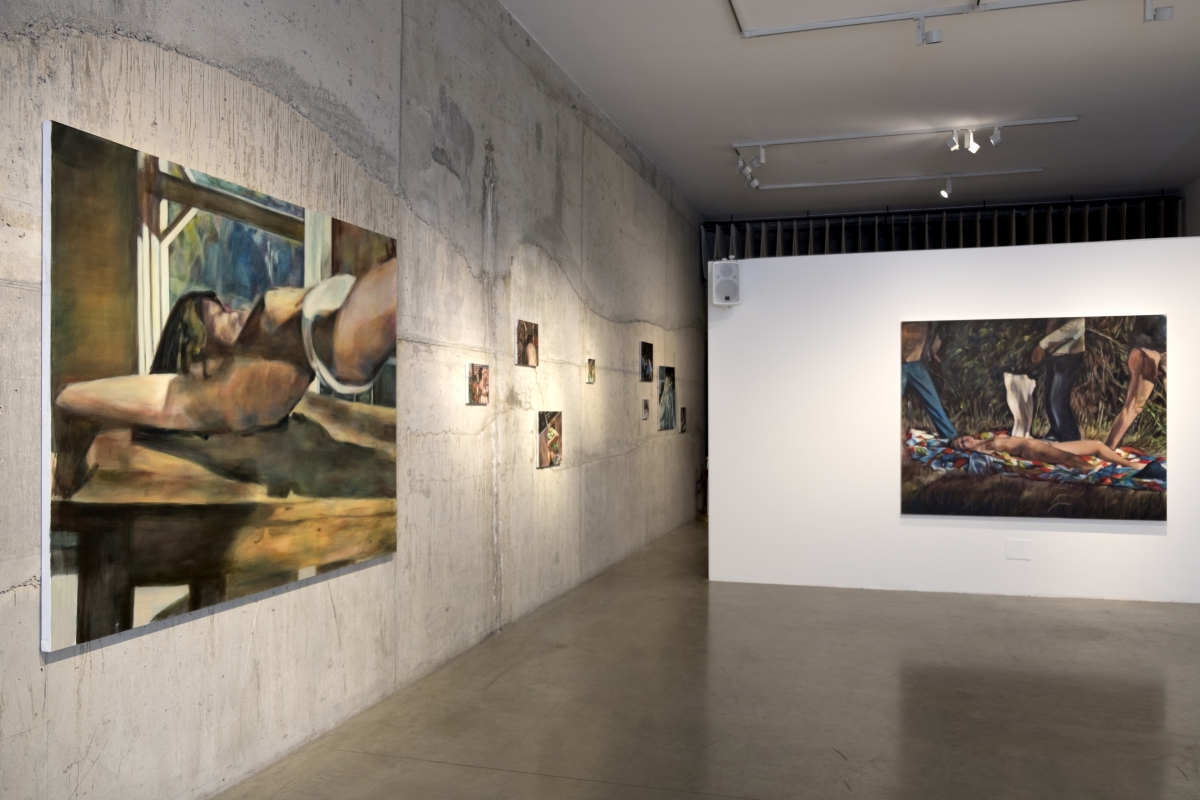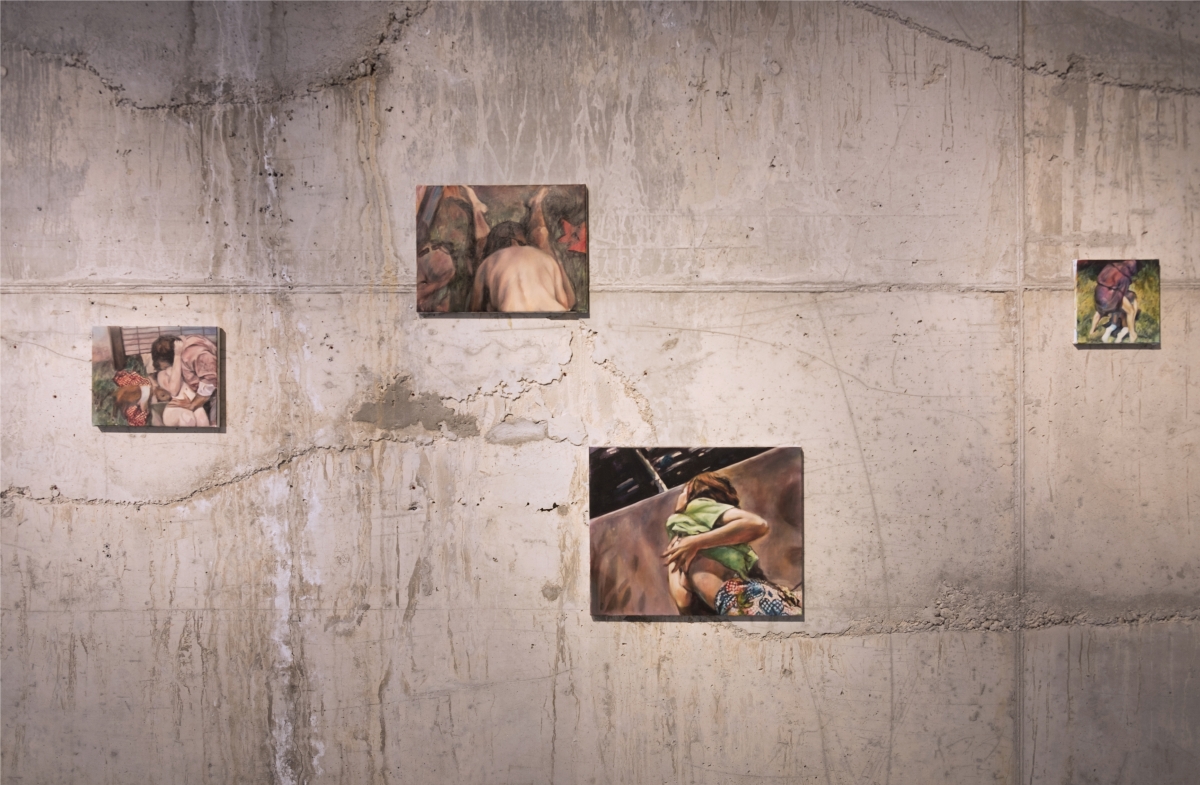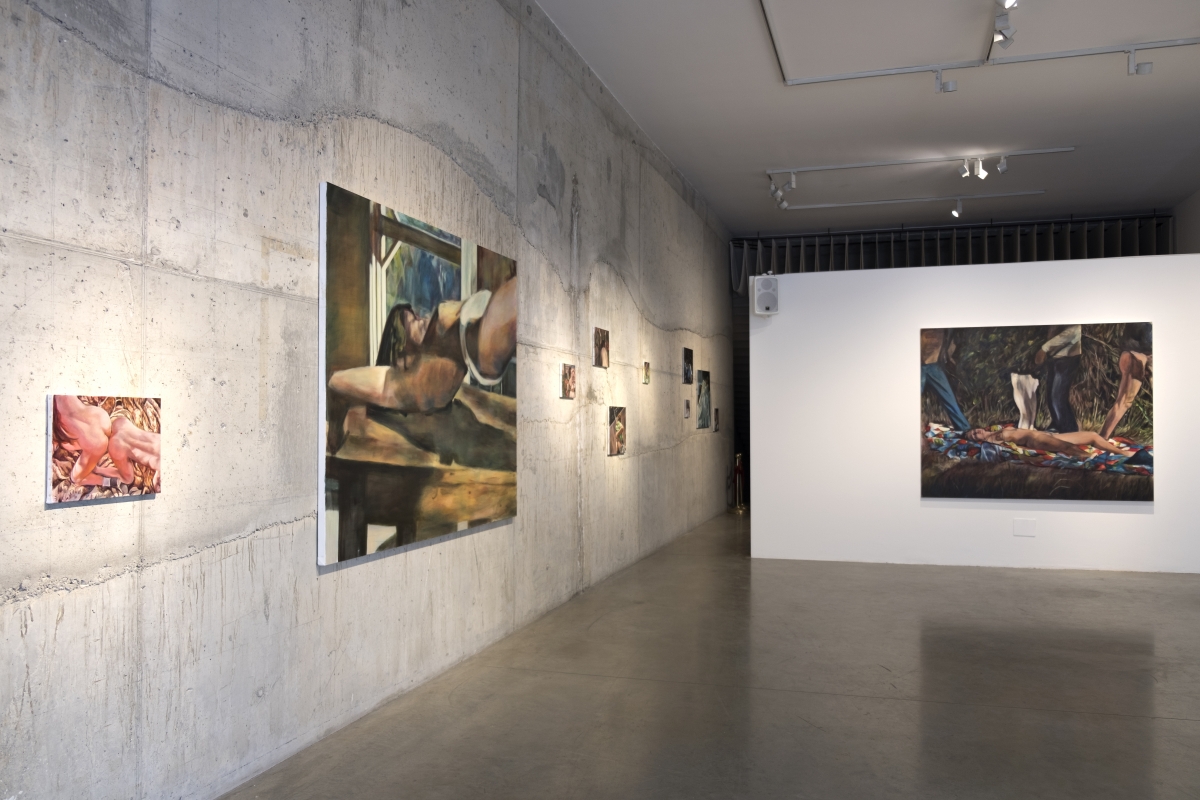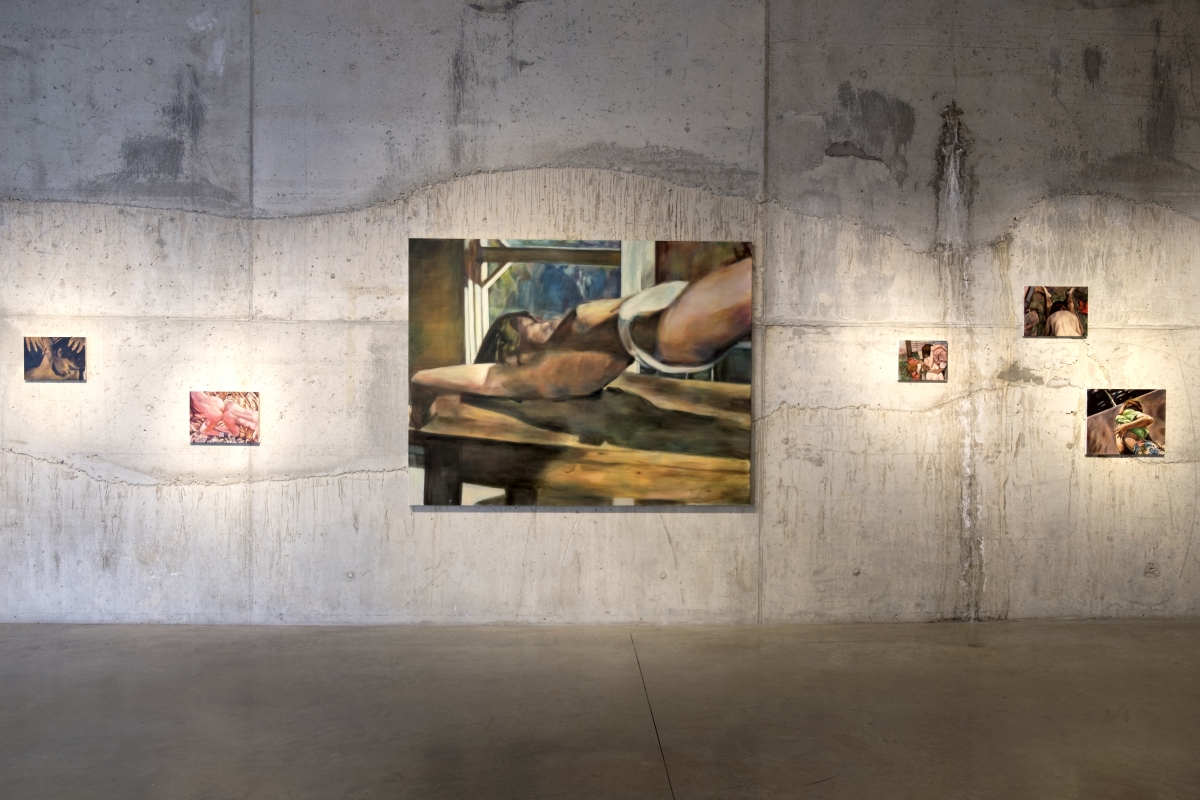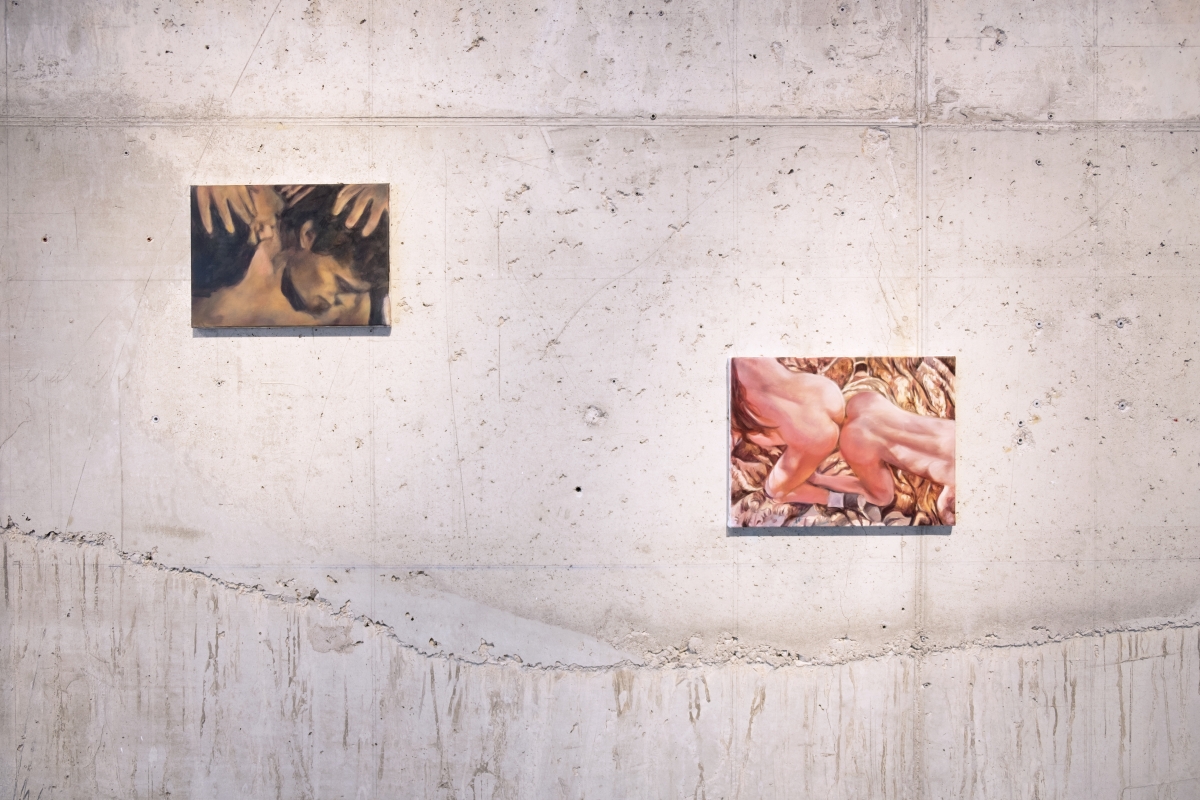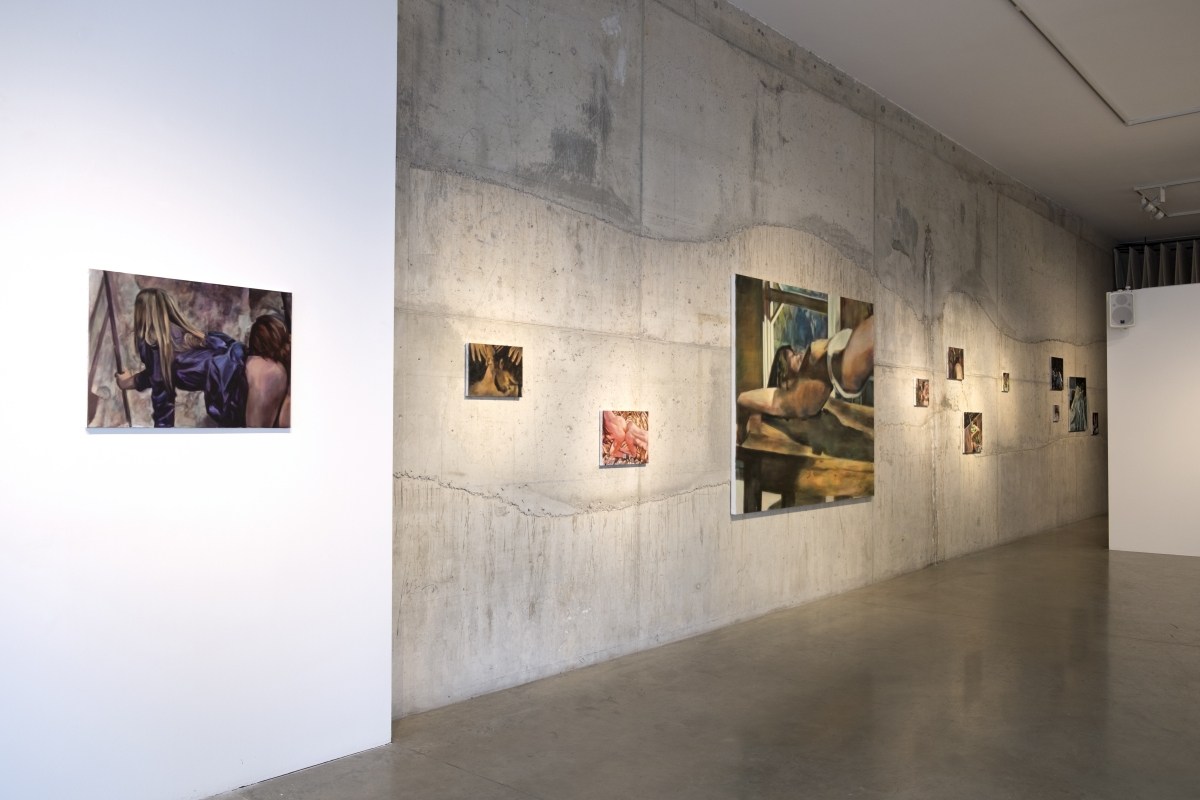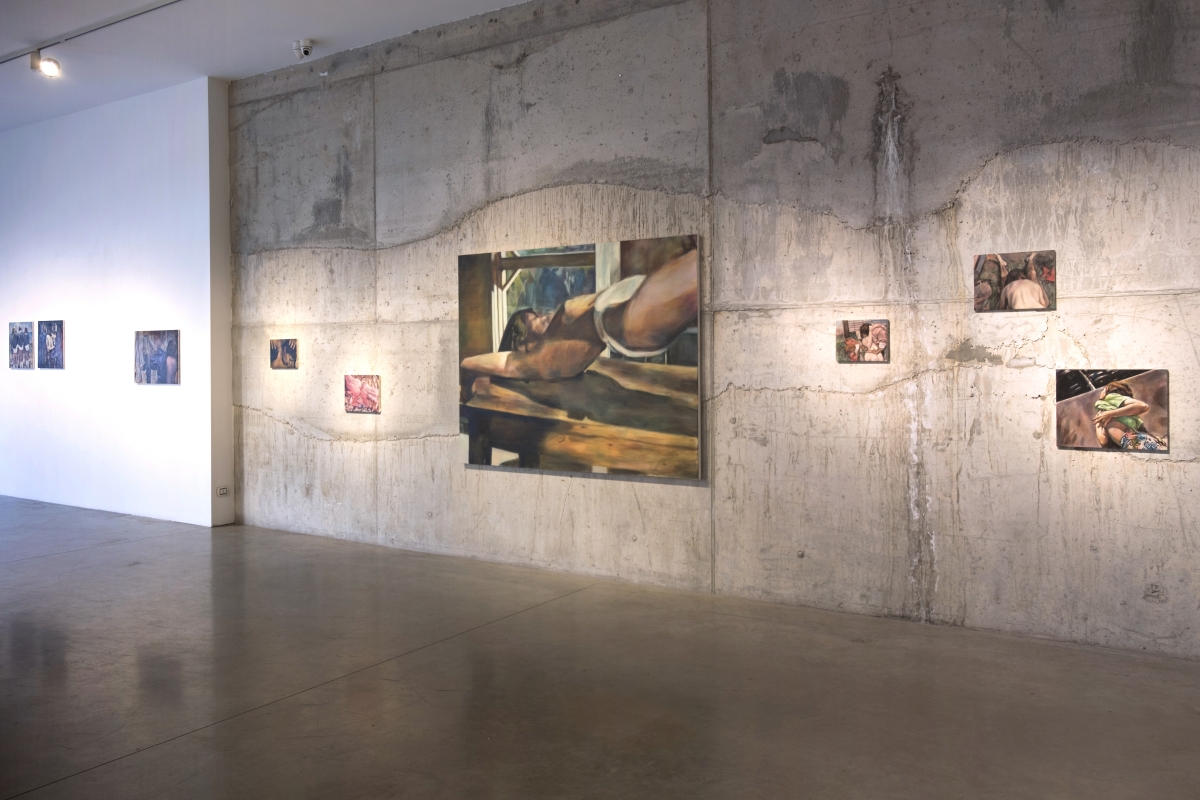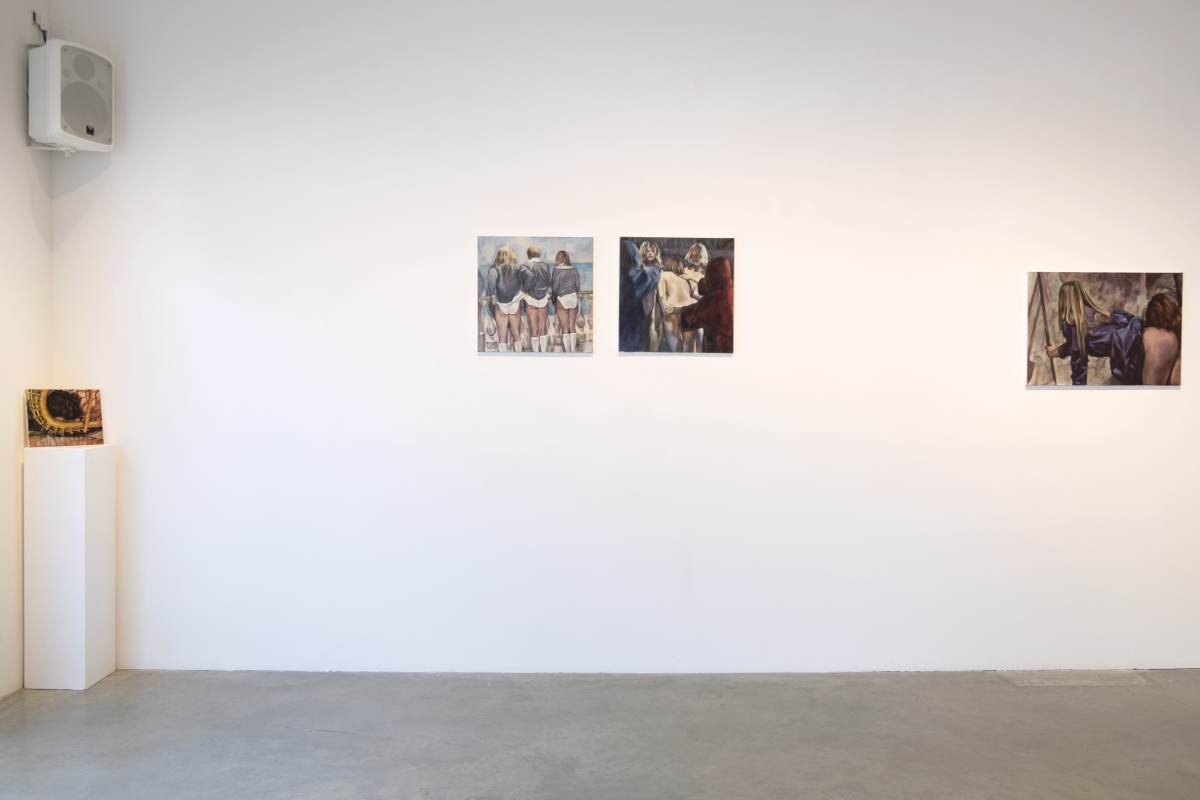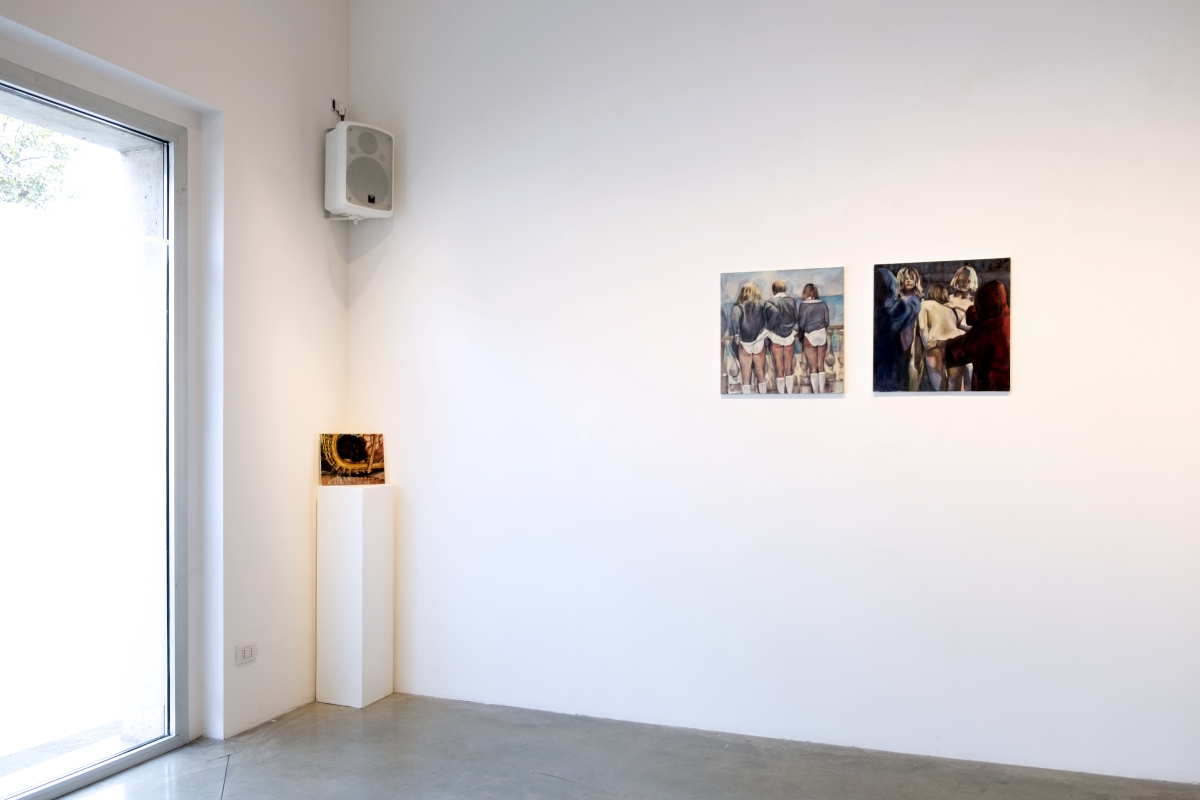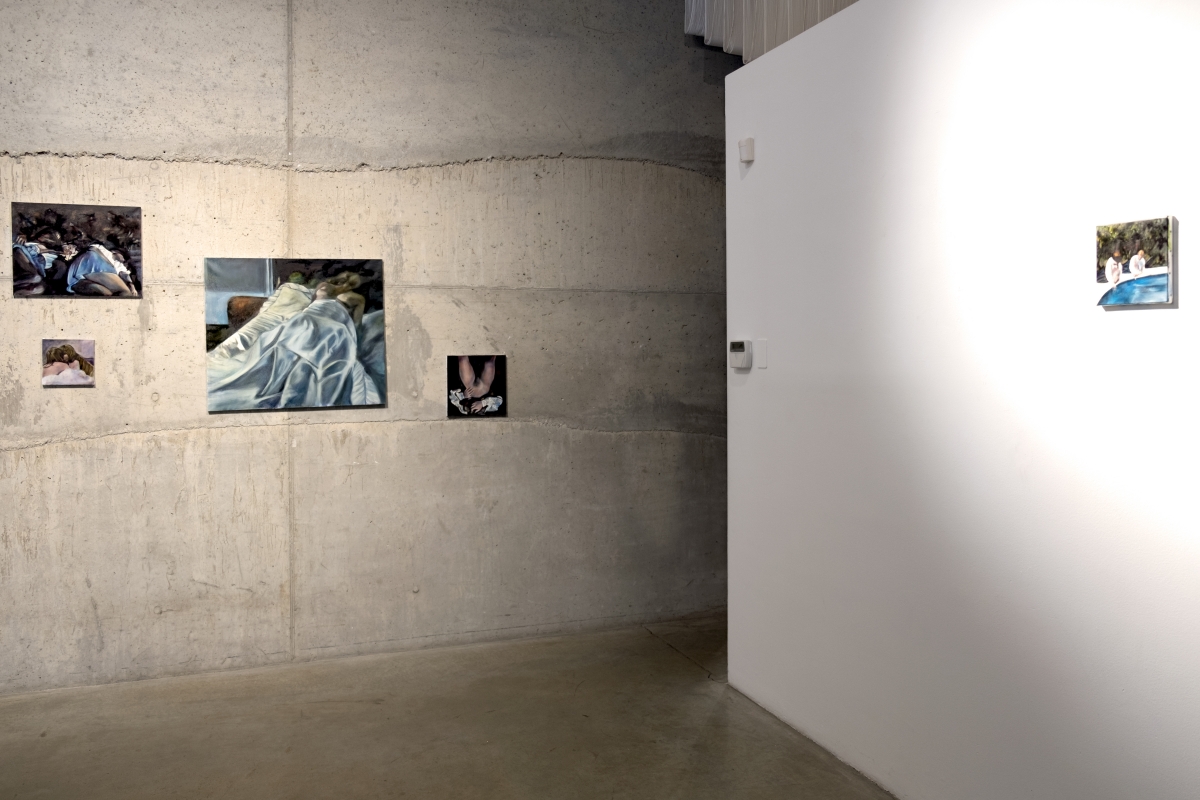I cookie ci aiutano a fornire i nostri servizi. Utilizzando tali servizi, accetti l'utilizzo dei cookie da parte nostra.
Where I end and you begin
Iva Lulashi
Text by Edi Muka
22.03 - 05.05.2023
Via G. Ventura 6 - Via Massimiano
20134 Milan
From Tuesday March 21, 2023, the spaces of Prometeo Gallery Ida Pisani will welcome the latest works of the artist Iva Lulashi (b. 1988, Tirana) exhibited for the first time in the project Where I end and you begin. By fitting into a path that is already underway - begun in 2018 and carried on in 2021 with the solo shows Eroticommunism and Passione Cola Passione Scorre - in Where I end and you begin Lulashi continues her research on the materiality of the pictorial sign - always ambiguously suspended, almost like an oxymoron, between the condensation of an explicit and contingent carnality and its dilation in an indefinite space-time, out of phase in regard to any narrative linearity.
In this double resonance between the instant and its expansion, Lulashi explores themes characterized by uncertain boundaries: eroticism and sexuality, identity and memory, history and nostalgia, always preserving a constant focus on the body - a jumble of tensions and desires - conceived as the fabric wherein the frayed threads of this emotional entanglement are tied.
Where I end and you begin showcases these flaking, both pictorial and symbolic, which are made visible here while preserving their radical uncertainty. Artworks wherein, as Edi Muka writes in the accompanying text, "The border between innocence and debauchery, desire and pleasure, curiosity and abuse, and even established hierarchies of the gaze are dissolved and dissipated”. The figures and the scenes painted by Lulashi appear at once close and distant: immediate in their presence and elusive in the framings that they offer to the gaze. because framing is what it is all about, such as those taken from archives of erotic and pornographic films that date back to the near past of communist Albania: an epoch and an imagery that the artist, despite never having experienced them firsthand, continues to sound out and translate into the actuality of the pictorial gesture. The latter, as the title of the exhibition suggests, is rooted in a linguistic space that is already incomplete in itself, thus open to different and simultaneous interpretations, each one ready to arise in an attempt to frame in turn the bodies, movements, obscenities and intimacies that appear on the canvas from time to time.
In Where I end and you begin Lulashi thus paints in a liminal space, when the bodies (not only the human body organically understood, but also the body of nature, history, and time itself) meet maliciously without letting you guess what is going to happen next. What is revealed is ‘only’ a carnal and therefore lacking contact, so quiet, opaque and intense that it resolves itself in the seductive loss of any perimeters.
Lulashi's painting invites one to cross this atmosphere of erotic tension: seeing and not seeing, remembering and imagining and, ultimately, chasing something that is hidden, without ever reaching.
In front of these images, stripped of any descriptive or representational intent, it is indeed useless to search for any specific space-time coordinates, since Where I end and you begin seems to evoke that waking state that separates sleep from reality, where everything is still blurred. Here then, the exhibition comes across as a deliberate anti-narrative where the act of seeing can get confused with an unintentional voyeurism, swinging between curiosity, embarrassment and seduction. As if Lulashi's canvases were to be looked at surreptitiously, erotically and almost-liberatingly, still imagining all that they might still reveal in the following moment.


